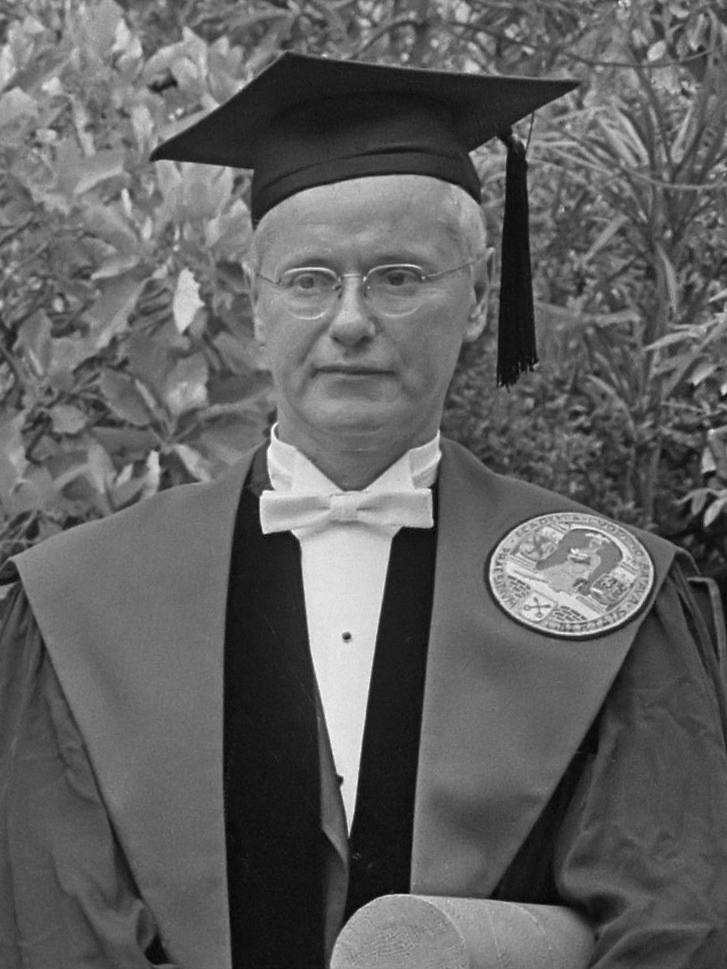“No man knows fully what has shaped his own thinking”
Source: Social Theory and Social Structure (1949), p. ix (1957 edition)
Robert King Merton was an American sociologist. He spent most of his career teaching at Columbia University, where he attained the rank of University Professor. In 1994 he was awarded the National Medal of Science for his contributions to the field and for having founded the sociology of science. He is considered a founding father of modern sociology and a major contributor to criminology.
Merton developed notable concepts such as "unintended consequences", the "reference group", and "role strain", but is perhaps best known for the terms "role model" and "self-fulfilling prophecy". A central element in modern sociological, political, and economic theory, a self-fulfilling prophecy is one type of process through which a belief or expectation affects the outcome of a situation or the way a person or group will behave. Defined by Merton, "The self-fulfilling prophecy is, in the beginning, a false definition of the situation evoking a new behavior, which makes the originally false conception come true."Merton's work on the "role model" first appeared in a study on the socialization of medical students at Columbia University. The term grew from his theory of the reference group, the group to which individuals compare themselves but to which they do not necessarily belong. Social roles were central to Merton's theory of social groups. Merton emphasized that, rather than a person assuming one role and one status, they have a status set in the social structure that has, attached to it, a whole set of expected behaviors.
Wikipedia

“No man knows fully what has shaped his own thinking”
Source: Social Theory and Social Structure (1949), p. ix (1957 edition)
Source: Social Theory and Social Structure (1949), p. 477 (1968 Enlarged edition)
Context: The self-fulfilling prophecy is, in the beginning, a false definition of the situation evoking a new behaviour which makes the original false conception come "true". This specious validity of the self-fulfilling prophecy perpetuates a reign of error. For the prophet will cite the actual course of events as proof that he was right from the very beginning.
Source: Social Theory and Social Structure
Source: The Sociology of Knowledge, (1937), p. 493
Merton (1938) "Science and the Social Order". In: Philosophy of Science Vol 5, nr 3, p. 326
Merton (1968) "The Matthew Effect In Science", In: Science Vol. 159, no. 3810 (5 January 1968), p. 56-63: On scientists, the Nobel Prizes, and the Matthew effect in scientific research.
Context: The role of outstanding scientists in influencing younger associates is repeatedly emphasized in the interviews with laureates. Almost invariably they lay great emphasis on the importance of problem-finding, not only problem-solving. They uniformly express the strong conviction that what matters most in their work is a developing sense of taste, of judgment, in acting setting upon problems that are of fundamental importance. And, typically, they report that they acquired this sense for the significant problem during their years of training in evocative environments. Reflecting on his years as a novice in the laboratory of a chemist of the first rank, one laureate reports that he "led me to look for important things, whenever possible, rather than work on endless detail or to work just to improve accuracy rather than making a basic new contribution."
Source: The Sociology of Knowledge, (1937), p. 503
Source: Social Theory and Social Structure (1949), p. 162 (1957 edition) as cited in: John H. Scanzoni (1970) Opportunity and the family. p. 55
“Scientific research is not conducted in a social vacuum.”
Source: Social structure and anomie (1938), p. 263 (1973 Edition)
Source: Social Theory and Social Structure (1949), p. 162 (1957 edition)